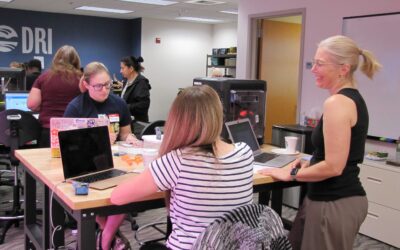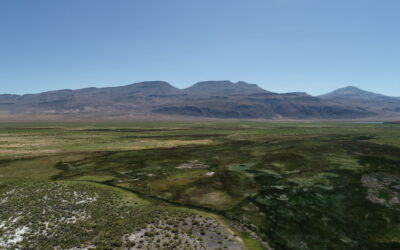Program now accepting applications for 2018
Reno, NV (Tuesday, April 24, 2018): From malware infections to attacks on critical infrastructure like electricity grids, cybercrime is a growing concern across all industries and sectors of our world – and the prevention of cyber attacks of the future requires the training of a new generation of internet security specialists, today.
To provide cybersecurity skills and experience for interested individuals, the Desert Research Institute (DRI) in Reno, NV is seeking applicants for the 2018 DRI cybersecurity internship program. This program has been launched in partnership with the SANS Institute (Sans.org), a world-renowned internet security research and education organization.
The internship, which will run from August through December 2018, is open to residents of northern Nevada, including high school graduates, college students, and/or people interested in making a career change. Applicants will compete to earn one of several positions in the program, which includes a scholarship for the SANS CyberStart Essentials course, the CyberStart Essentials certification exam, and a 120-hour, hands-on cybersecurity internship at DRI.
During the semester-long internship, participants will work under DRI’s Chief Information Security Officer, Brandon Peterson, to gain hands-on experience building cyberinfrastructure using best practices from the National Institute of Standards and Technology (NIST). The internship will prepare students to install, configure, and harden operating systems; validate operating systems against NIST standards; and cover penetration and testing. Students will learn about treating malware infections, defending against real-time denial of service attacks, and providing security awareness training to end-users. Students will also train in DRI’s new cyber range to practice state-of-the-art hacking tools in our advanced facilities.
“Cybersecurity is incredibly essential to many aspects of our lives and careers, as well as too much of the infrastructure that we rely on in our communities, whether we realize it or not,” said Meghan Collins, Cybersecurity Internship Program Manager for DRI. “This internship will provide a fantastic opportunity for interested individuals to gain hands-on experience and marketable job skills related to cybersecurity, as well as professional certifications that we hope will help participants find employment if they choose to continue down this career path.”
To apply for the cybersecurity internship program, candidates must complete an online application by May 31,2018, and take part in a five-day SANS CyberStart Game held on the DRI campus in Reno on June 18 – 22. The game will help gauge the applicant’s skills in solving puzzles, cracking codes, and creating new software tools to find security flaws.
Successful applicants will be notified of their selection for the internship program by mid-July, and take the five-day Cyberstart Essentials Course in August. The 120-hour internship at DRI will continue from August to December 2018 (interns will work 8-hours per week, on Fridays), and culminate in the completion of the CyberStart Essentials Certification exam. The internship is unpaid, however, can be completed for college credit (the student is responsible for the cost of credits at their respective institutions).No previous cybersecurity training or experience is necessary to apply.
Funding for this new program was provided by a STEM Workforce Challenge Grant from the Nevada Governor’s Office of Science, Innovation and Technology. STEM Workforce Challenge Grants seek to create lasting partnerships between Nevada’s STEM industries and workforce training providers focusing on certificate and degree programs of two years or less.
More details about this program, including the application form, are available on DRI’s website.
For more information about the SANS Institute, visit www.sans.org.
###
The Desert Research Institute (DRI) is a recognized world leader in investigating the effects of natural and human-induced environmental change and advancing technologies aimed at assessing a changing planet. For more than 50 years DRI research faculty, students, and staff have applied scientific understanding to support the effective management of natural resources while meeting Nevada’s needs for economic diversification and science-based educational opportunities. With campuses in Reno and Las Vegas, DRI serves as the non-profit environmental research arm of the Nevada System of Higher Education. For more information, please visit www.dri.edu.


